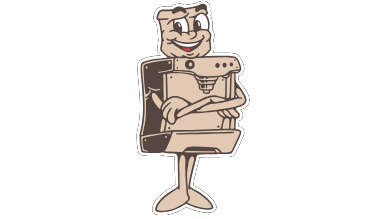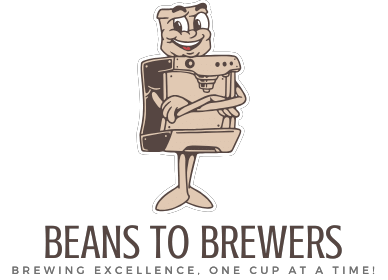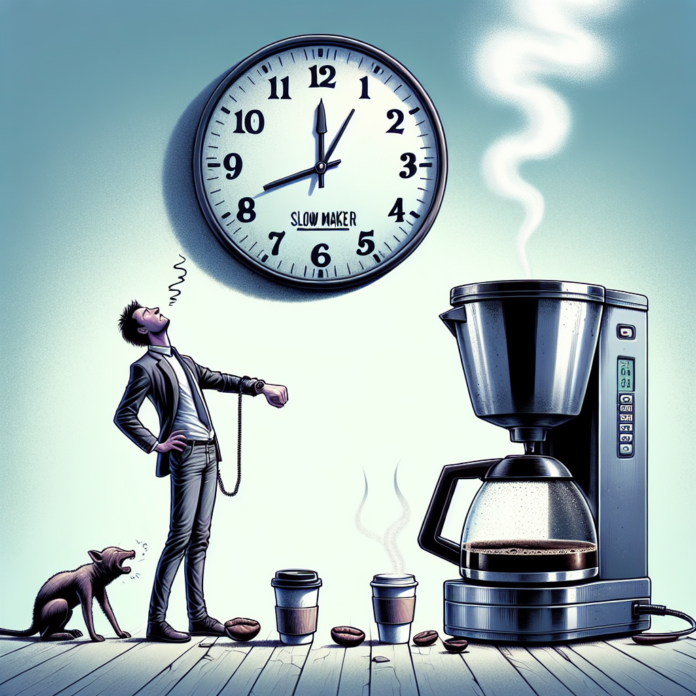Are you finding yourself waiting impatiently for your morning cup of coffee? You may have noticed that your trusty coffee maker is taking longer than usual to brew your favorite beverage. In this article, we will explore the possible reasons behind this frustrating phenomenon. From clogged filters to scaled heating elements, there are several factors that could be causing the delay. So, grab a fresh cup of joe and let’s investigate why your coffee maker is slowing down!
Possible Reasons for a Slow Brewing Coffee Maker
Clogged Water Filter
One possible reason for a slow brewing coffee maker is a clogged water filter. Over time, the water filter can become filled with debris and minerals, which restricts the flow of water. This can lead to a slower brewing process as the water struggles to pass through the filter. To fix this issue, you can clean or replace the water filter.
Mineral Buildup in the Coffee Maker
Another reason for a slow brewing coffee maker is the buildup of minerals, such as calcium and lime, inside the machine. These minerals can accumulate over time, especially if you have hard water. The buildup can affect the overall performance of the coffee maker, including the brewing time. Regular descaling of the machine can help remove these mineral deposits and restore the efficiency of the coffee maker.
Faulty Heating Element
If your coffee maker takes longer to brew than before, it could be due to a faulty heating element. The heating element is responsible for heating up the water to the optimal brewing temperature. If it is malfunctioning or not heating properly, it can result in a longer brewing time. Checking the heating element and replacing it if necessary can help resolve this issue.
Incorrect Coffee-to-Water Ratio
Having an incorrect coffee-to-water ratio can also contribute to a slow brewing process. If you use too much coffee or too little water, the extraction process can be compromised, resulting in an extended brewing time. It is important to follow the recommended ratios provided by the coffee maker manufacturer or adjust according to your personal preferences.
Low Power Source
A coffee maker that is not receiving sufficient power can lead to slower brewing times. If the outlet or power source is not providing enough electricity, the machine may not be able to heat the water and brew the coffee as efficiently. Ensure that the coffee maker is connected to a suitable power source and consider using a different outlet if necessary.
Worn-out Parts
Over time, the various components of a coffee maker can become worn out, which can affect its brewing speed. Components such as the water pump, hoses, seals, or valves may deteriorate or become damaged. These worn-out parts can impact the flow of water or cause leaks, resulting in a slower brewing process. replacing these worn-out parts can help improve the performance of your coffee maker.
High Altitude Effects
If you live in a high-altitude area, it can have an impact on the brewing time of your coffee maker. The lower air pressure at higher altitudes causes water to boil at a lower temperature, which can affect the brewing process. It may take longer for the water to reach the desired temperature, resulting in a slower brewing time. Some coffee makers offer altitude adjustments that allow you to compensate for this factor.
Using the Wrong Coffee Grind Size
The coffee grind size can significantly impact the brewing time of your coffee maker. If you use a grind size that is too coarse, the water may flow through the coffee grounds too quickly, resulting in weak and under-extracted coffee. On the other hand, using a grind size that is too fine can slow down the brewing process as the water struggles to pass through the compacted coffee. Finding the right grind size for your specific coffee maker can help optimize the brewing time.
Too Fine Coffee Grind
While using a fine coffee grind can result in a slow brewing time, it is important not to go too fine. If the coffee grounds are too fine, they can clog the filter and impede water flow, leading to an even slower brewing process. It is crucial to find the balance and use a grind size that allows proper extraction without causing any blockages.
Brewing Too Large a Batch
Brewing a large batch of coffee may also contribute to a slow brewing coffee maker. When the water has to pass through a greater amount of coffee grounds, it naturally takes more time to complete the brewing process. If you regularly find yourself needing large quantities of coffee, consider brewing in smaller batches or investing in a coffee maker with a higher capacity to avoid prolonged brewing times.
Steps to Troubleshoot a Slow Brewing Coffee Maker
Clean the Water Filter
For a clogged water filter, start by removing the filter from the coffee maker. Rinse it under running water to remove any debris or residue. If you notice excessive buildup, soak the filter in a mixture of warm water and vinegar for about 15 minutes. Gently scrub the filter with a soft brush to dislodge any stubborn particles. Rinse the filter thoroughly and place it back into the coffee maker.
Descale the Coffee Maker
To remove mineral buildup, it is essential to descale the coffee maker regularly. Fill the water reservoir with equal parts of water and vinegar. Run a brewing cycle without coffee grounds, allowing the mixture to move through the machine. Once the cycle is complete, discard the mixture and run another brewing cycle with clean water to rinse the machine. Repeat this process periodically, depending on the level of mineral buildup.
Check the Heating Element
To check the heating element, turn off and unplug the coffee maker. Locate the heating element, usually found near the water reservoir. Inspect the element for any visible damage or signs of malfunction. If it appears damaged or faulty, consult the coffee maker’s manual or contact the manufacturer for further instructions on replacing the heating element.
Adjust the Coffee-to-Water Ratio
Ensure that you are using the recommended coffee-to-water ratio for your specific coffee maker. Refer to the coffee maker’s user manual or the manufacturer’s guidelines for the ideal ratio. Adjust the amount of coffee and water accordingly to achieve the desired taste and brewing time.
Ensure Adequate Power Supply
Check that the coffee maker is properly connected to a suitable power source. Plug it into a different outlet or try a different power cord to determine if the issue is related to the power source. If the coffee maker still does not receive adequate power, consult a professional or contact the manufacturer for assistance.
Replace Worn-out Parts
If you suspect that worn-out parts are causing the slow brewing, consider replacing them to improve the performance of your coffee maker. Consult the coffee maker’s manual or contact the manufacturer to identify the specific parts that may need replacement. Follow the provided instructions or seek professional help to ensure proper installation.
Account for High Altitudes
If you live in a high-altitude area, check if your coffee maker offers altitude adjustments. Consult the user manual or contact the manufacturer to determine how to adjust the brewing process for higher altitudes. Make the necessary adjustments to compensate for the lower boiling point of water.
Use the Correct Coffee Grind Size
Experiment with different coffee grind sizes to find the one that suits your coffee maker the best. If the brewing time is too slow, try using a slightly coarser grind size. If the brew is too weak or watery, go for a slightly finer grind size. Keep adjusting until you achieve the desired balance of brewing time and flavor extraction.
Avoid Very Fine Coffee Grind
Avoid going too fine with your coffee grind. While finer grind sizes can enhance flavor extraction, excessively fine coffee grounds can lead to clogs in the coffee maker’s filter, obstructing the water flow and causing slower brewing times. Find the sweet spot where the grounds are finely textured but not too fine to prevent clogging.
Brew in Smaller Batches
If brewing large quantities of coffee regularly prolongs the brewing time, consider brewing in smaller batches. Divide the desired amount into two or more brewing cycles, allowing the coffee maker to work more efficiently and reduce the overall brewing time. Alternatively, invest in a coffee maker with a higher capacity to accommodate your needs.
By troubleshooting and addressing these possible reasons for a slow brewing coffee maker, you can ensure that your morning cup of coffee is brewed efficiently, saving you precious time and delivering the perfect brew every time. Remember to follow the recommended maintenance routines, use appropriate coffee grinds, and optimize the coffee-to-water ratio for the best brewing experience with your coffee maker.




